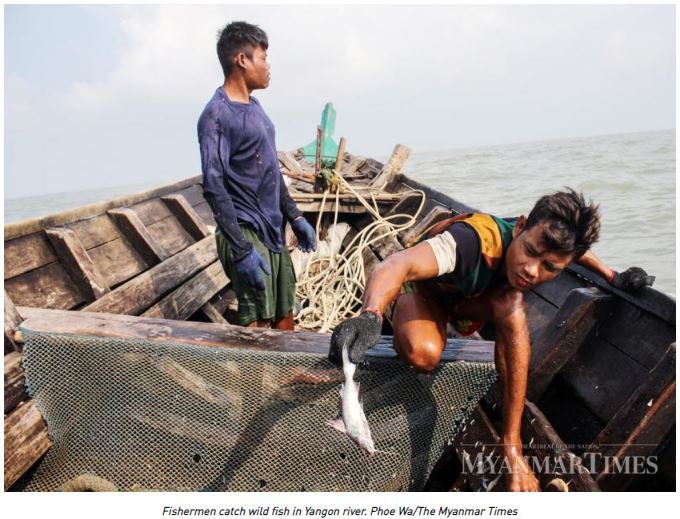Myanmar raises efforts to export fishery products
Two fish processing plants — TT Cold Store Factory and A&N Foods (Myanmar) Co. Ltd — have been granted permits to export fish caught in the wild to the European Union, according to a report by state media.
The Fisheries Department, under the Ministry of Agriculture, Livestock, and Irrigation, is working with the fish processors and exporters to ensure Myanmar fishery products meet the rules and regulations of importing countries, including the EU, the report said.
21 local fish factories have been given permission to export their products to the EU so far. TT Cold Store and A&N Foods were permitted to place their products in the EU market after meeting the requirements.
However, Myanmar currently does not meet the standards required to export farmed fish, as local fish farms are not prepared to guarantee their products are free from biochemical residues. Residue tests have to be conducted at each stage of production, which includes hatching, farming, feeding and processing.
To meet EU import standards, fishery products must be produced by only those hatcheries that are compliant with the Good Aquaculture Practices.
Meanwhile, Saudi Arabia has agreed to send a delegate from its Food and Drug Authority to check on cold storage facilities and fish farms in Myanmar.
Saudi Arabia, which imports about 20,000 tonnes of marine products from Myanmar annually, had stopped buying farmed rohu fish since April last year after bacteria was found on the same fish species imported from Vietnam.
As Myanmar is currently also exporting its marine products to European markets, it shouldn’t be difficult for us to meet Saudi Arabia requirements, said U Tun Lwin, deputy permanent secretary of the Agriculture, Livestock and Irrigation Ministry.
“Myanmar companies certainly meet standards because their products are being exported to the EU. The Saudi product quality standards are not as strict as those for the EU. So, there won’t be any difficulty. They would be able to be resume exporting rohu after the inspection is done,” he told The Myanmar Times earlier this month.
Before the ban, Saudi Arabia was among the top importers of Myanmar fish and marine products. The main export markets of Myanmar marine products are Asian countries such as China, South Korea and Japan. The EU is a big export market as well.
In 2017-18, Myanmar exported just over 570,000 tonnes of fisheries worth US$712 million, the highest amount in history.
Yet, despite enjoying long coastlines, Myanmar’s fisheries sector still lags behind its neighbours in terms of scale and competitiveness, said Dr Zaw Oo, executive director at the Centre for Economic and Social Development.
Last February, dialogues commenced on the drafting of a National Aquaculture Development Plan (NADP), which will set out long term national objectives to foster the future development of the fisheries sector. State and regional consultations for the NADP were held in Yangon last December.
Source: https://www.mmtimes.com/news/myanmar-raises-efforts-export-fishery-products.html


 English
English




